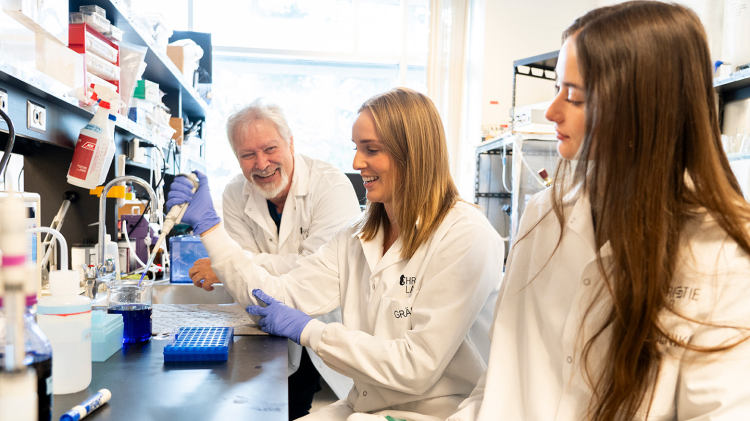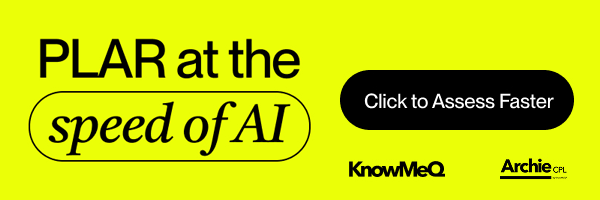Concussion and other traumatic brain injuries impact an estimated 69 million people every year, as a result of sport collisions, falls, road accidents and interpersonal violence. There are few treatments, and no approved and effective pharmacotherapies.
New research from the Christie Lab at the University of Victoria (UVic) reveals the promise of two psychedelic compounds psilocybin and 5-methoxy-N, N-dimethyltryptamine (5-MeO-DMT) for healing these injuries, by enhancing neuroplasticity and reducing inflammation within the brain.

Brian Christie, Taylor Snowden and Jamie Morrison work in a lab at UVic. UVic Photo Services
Psilocybin is a naturally occurring compound found in certain mushrooms. 5-MeO-DMT is found in toad venom and select plant species. Over the past decade, clinical research has shown the safety and effectiveness of psilocybin, and the promise of 5-MeO-DMT, for treating depression, anxiety, end-of-life distress, substance-use disorders, and obsessive-compulsive disorder.
The team at UVic (Zoe Plummer, Josh Allen, Justin Brand and Brian Christie) reviewed the growing evidence that these compounds also offer potential for treating brain injuries. Their review, published in Progress in Neuro-Psychopharmacology and Biological Psychiatry, in collaboration with Leah Mayo from the University of Calgary, and Sandy Shultz from Vancouver Island University, drew from preclinical and clinical studies.
"When someone receives a blow to the head, this sets off a cascade of events in the brain," says Allen, one of the authors of the review and a UVic postdoctoral fellow in neuroscience. "One of these is inflammation, which can initially help brain tissue to repair."
However, when this inflammation is prolonged, it can lead to long term problems such as learning and memory deficits, depression and anxiety disorders, and post-traumatic stress disorder. "These conditions share features such as impaired neuroplasticity that keep patients trapped in rigid loops of thought and behavior," says Allen.
This can occur even with mild traumatic brain injuries what we call concussion. And many people who play sports or serve in the military experience concussions repeatedly.
"Our review concluded that classical psychedelics have the potential to reduce inflammation in an injured brain, while also increasing neuroplasticity and helping the brain to reorganize, creating new neural pathways to compensate for lost or damaged connections," says Christie, director of the UVic Concussion Lab. Read more about the Christie Lab.
By reopening windows of plasticity and inducing mind-expanding experiences, psychedelics also help prevent the development of depression, anxiety, and other psychiatric disorders associated with brain injury, and offer pathways to recovery."
Brian Christie, director of the UVic Concussion Lab
More research is needed to understand how psychedelics work on traumatic brain injury, and how age, sex, and other health conditions impact their safety and effectiveness. With further research, these compounds offer great promise to both patients and over-stretched health-care systems.
This research was supported by funding from the Canadian Institutes of Health Research (CIHR) and aligns with the United Nations Sustainable Development Goal (SDG) No. 3 (good health and well-being). Learn more about the SDGs at UVic.












